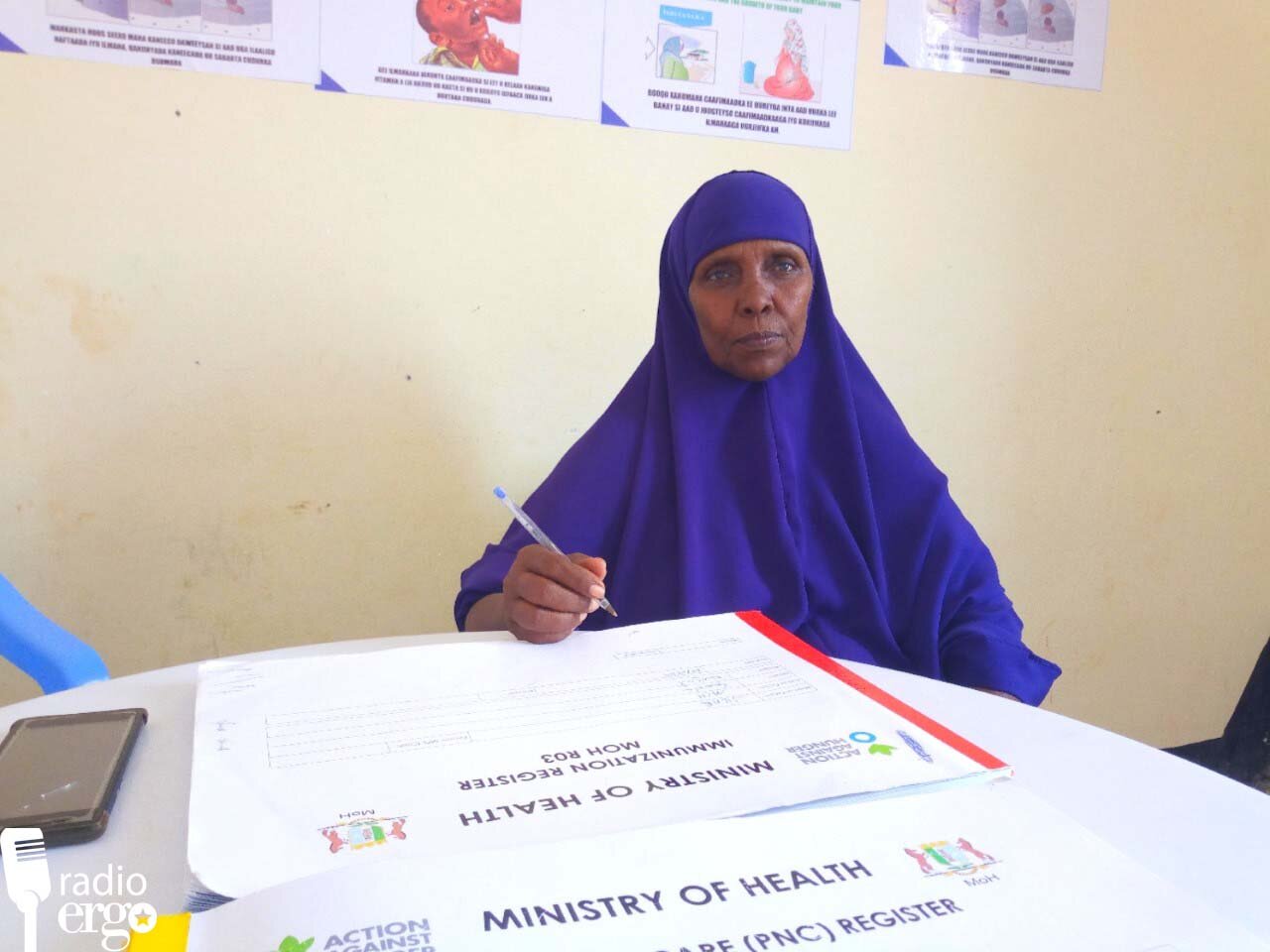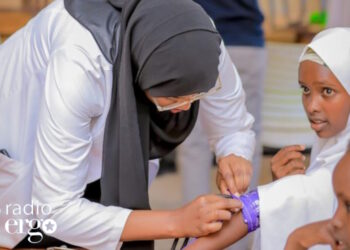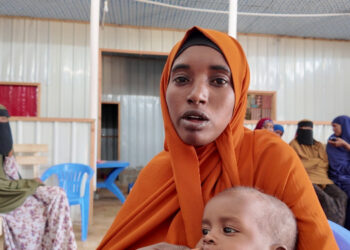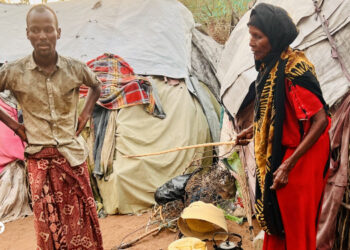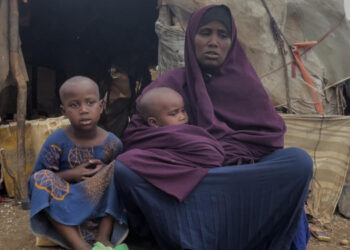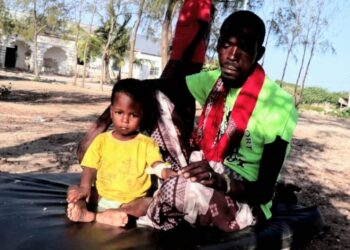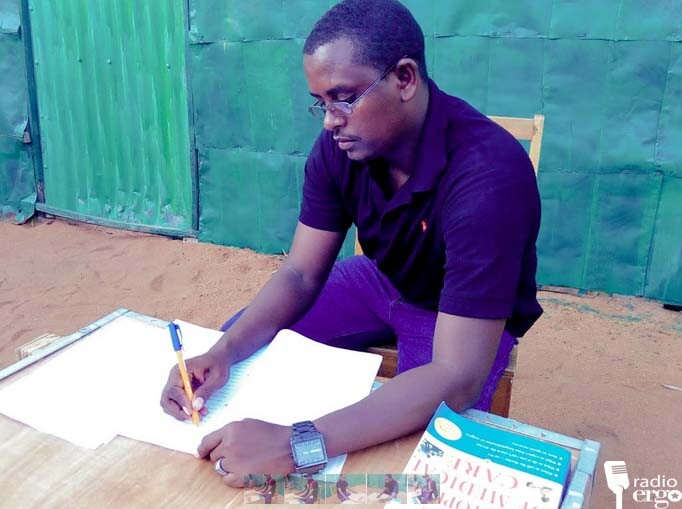(ERGO) – This week’s report in Radio Ergo’s IDP Camps series highlights the role played by displaced medical workers in providing healthcare in a camp near Garowe in Puntland.
Sadio Dahir Nur, 55, works as a nurse in Jillab camp, outside Garowe, taking care of expectant mothers and their children, dispensing medicines to the sick, and organising hygiene and sanitation awareness among the camp residents.
Sadio heads a team of 13 staff at the Maternal and Child Health services clinic (MCH) in Jillab. She is the only medical officer who is herself displaced, the rest of her colleagues coming from the town.
She studied public health in Mogadishu but five years after becoming a practising health worker the government collapsed and Somalia descended into civil war and chaos.
She and her husband and their four children migrated to live with their relatives in Nugal region, where they started a rural life. They managed to adapt, with Sadio taking care of the relatives’ herd of 200 goats.
However, when the livestock died in the drought in 2016, they were forced to migrate to the town and Sadio’s family settled in Jillab camp.
“Throughout my stay in the rural areas I still practised my health worker skills and even took medicines there for those who couldn’t afford them,” Sadio said.
“Being a health worker is an important role in any society. The people in the community know me and they like what I do in this area.”
Sadio uses her salary to take care of her sick husband, four children, and her five grandchildren, all of whom live with her in the camp.
“I praise God for the education I received that I am using to earn a living now,” she said.
“Though I am happy to live with and benefit people who are IDPs like me, I would like to be a resident outside the camp.”
Abdifatah Mohamed Nur, 27, is also living in Jillab camp, where he runs the only pharmacy. He studied pharmacy for two years in Galkayo, before going to the rural areas in Mudug region to help his parents rearing their livestock.
However, their livestock died in the drought and they too drifted to Jillab as displaced people.
Abdifatah borrowed money from a relative to open the pharmacy when he saw the needs in the camp.
“I am so happy to be helping the community using my skills and still earning from it,” he told Radio Ergo.
He earns around $250 a month from the business and has enrolled four of his five children in school.
Abdifatah also has ambitions and is studying the English language, computers, and some online health courses. Like Sadio, he hopes to be able to move out of the camp as soon as he can.
Abdirahman Hassan Abdi, an IDP camp committee member, told Radio Ergo that MCH and pharmacy were the only amenities they enjoyed.
“The camp doesn’t have enough water and there is no school,” he said.
“Children have to travel by bus to far-flung schools. The bus fare is 6,000 SoSh per child, which these people can’t pay.”
Most camp dwellers earn a living doing odd jobs such as washing clothes and casual labour in town. They also live in constant fear of eviction by landowners.
The majority of the 520 families in Jillab are former pastoralists from rural parts of Nugal and the north of Mudug. Most would like to return to their old livelihoods but do not have any animals left.

